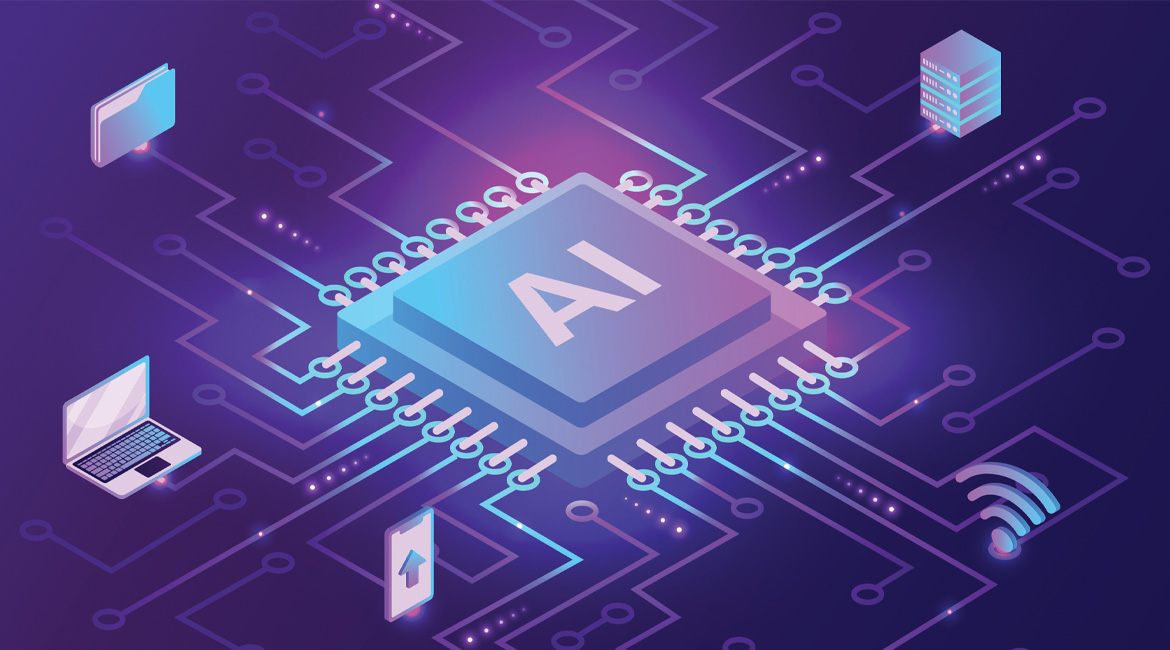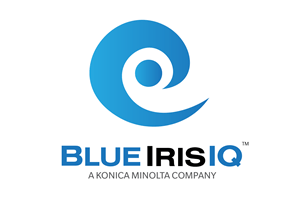The end game is saving time and creating a better customer experience.
If you’ve clicked on any headline in the tech press in the last two years, you’ve been informed, sometimes in all caps, that you must embrace artificial intelligence (AI). Diversify your portfolio, stay on top of trends, and juice those stock prices. As an office technology dealer, you sell tools built for specific purposes, machines and software that solve concrete problems. So, what can AI do to make your organization’s workday, and your clients’ easier?
We spoke to two experts in this emerging technology space: Cody Walton, director of digital transformation at Konica Minolta Business Solutions, U.S.A., and West McDonald, founder of Go.West.AI, an AI consulting firm. Utility is the central question they both explore as they research what’s possible with artificial intelligence and consult with dealers on how to use the technology.
As Walton sees it, “How can we apply AI to not just work better for the dealers themselves, but for us to give our dealers a better customer experience?”
But first, a word of caution about artificial intelligence, and also everything in life: Getting results will take some work. “The biggest mistake is just trying to use the raw tools and expecting great things,” said McDonald. “It’s not going to happen.”
Why use AI? Why use a copier or a computer? The more tasks a machine can handle, the more time workers have for the tasks only a human can do. Any artificial intelligence solution you adopt in your dealership is also a solution your clients can use if you show them the way. Let’s examine five ways in which artificial intelligence can be advantageous.
1. Write Copy with Generative AI
The first task that comes to mind—the one that gets the most press and what lay people are most likely to have experimented with on their own—is using AI to write the things you can’t or don’t feel like writing on your own.
Although AI can help write blog posts, marketing copy, and whitepapers, McDonald cautions dealers not to expect out-of-the-box success. “People just type in ‘write me something about such and such,’ it comes out kind of crap, and they give up. It’s just not the right way to do it,” he said. McDonald offers custom-trained generative AI tools built from an archive of the client’s own text, which he considers a better way to do it. “We custom-train GPTs (generative pre-trained transformers) in the approved voice and tone of the organization,” he explained. “We’ll take hundreds or thousands of blogs and articles that were written, transcripts from videos that they’ve done, then we’ll build GPTs that speak in their voice.”
2. Analyze and Train with Expert Systems
Artificial intelligence is great at processing large volumes of information. Because of this, office technology dealers can use this to their advantage, making better use of data they may already be collecting but don’t have an efficient way to analyze.
“Use large language models to help you understand value positioning or give you competitive analysis,” recommended Walton. He also suggests using AI as an assistant to help sales reps be more in front of customers, listening and attentive, and in the present moment. “This is a huge advantage of AI,” he stressed.
Artificial intelligence is also is well-suited to building accessible training tools from all the manuals, procedures, and ever-updating policies that workers must stay on top of. “AI is excellent at digesting that information from service manuals and folders from HR…all the different documentation to train people on those complexities,” said McDonald. “We build them so that they actually are structured training AI machines, based only on the materials that are submitted from training for that organization, so they’re very focused.”
3. Optimize Workflows with Intelligent Information Management
AI’s data analysis powers can benefit a dealership and its customers. Intelligent information management—an evolution of existing software-as-a-service workflow optimization tools—builds on IT solutions clients may already have in place.
“First, it was workflow, then it became workflow automation, and now you’re starting to see AI-driven components doing analysis or decision-making or alert systems,” said Walton. “It’s just a natural progression of what has been content management and document management. For many organizations, this is their bread and butter.”
4. Perfect Lead Generation
What is lead generation if not research? Sure, some of it does and will always require a human touch, real person-to-person networking, and observational skills, but how many costly hours do sales reps spend pounding the digital pavement, manually scraping Google and other databases looking for basic information about B2B leads? Is that information up to date? For how long? How do you know?
“If you’ve got twenty sales reps, or a hundred, some common things get in the way of them selling beyond just the leads,” said McDonald. “One is making sure that the leads they’re working on aren’t falling through the cracks. Many AI solutions are being used to help ensure that these sales opportunities are being followed through.”
5. Abolish Tedium with CRM Integration
Sales is a people business, and sales conversations are about listening to people. However, the best sales meeting in the world won’t amount to anything if nobody remembers to do their action items afterward—sending clients the info they requested, syncing calendars, or following up. Here’s another task where artificial intelligence can make a difference.
“An average sales rep probably spends an hour to an hour and a half a day updating their CRM,” observed McDonald. “Most times, it just doesn’t get done, or it doesn’t get done very well.”
Another way to leverage artificial intelligence during a sales call is by having the tool take notes, generate follow-ups, and assign tasks after the call so that the sales rep can spend more time listening to the customer and less time taking notes. “In the end, you can get a recap, see exactly what’s taking place, and initiate a follow-up call automatically, all using AI,” said Walton.
“It’s really connecting all the different steps a salesperson would take in a day,” McDonald added. “It’s a huge advantage. What I like about these AI solutions that integrate automatically with the CRM, like HubSpot, SalesForce, and others, is that it’s invisible. It’s not something someone has to do.”





